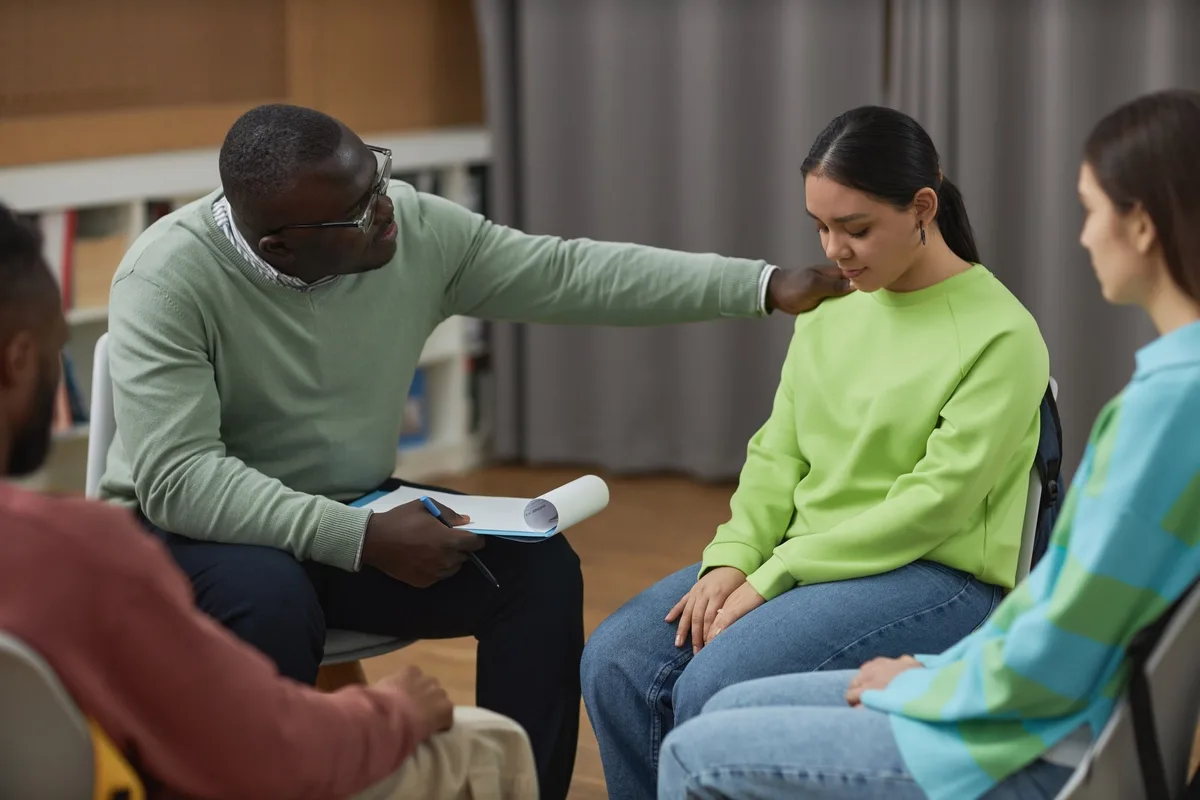24/7 Helpline:
(866) 899-221924/7 Helpline:
(866) 899-2219
Learn more about Stimulant Detox centers in Watonga

Other Insurance Options

Self-pay options

UnitedHealth Group

WellCare Health Plans

WellPoint

Molina Healthcare

Excellus

American Behavioral

Sliding scale payment assistance

MHNNet Behavioral Health

MVP Healthcare

Highmark

BHS | Behavioral Health Systems

BlueCross

Private insurance
Beacon

Optima

Lucent

Multiplan

Aetna

AllWell

Red Rock Behavioral Health Services
Red Rock Behavioral Health Services is a private rehab located in Watonga, Oklahoma. Red Rock Behavi...



YouthCare of Oklahoma
YouthCare of Oklahoma is an outpatient clinic that provides mental health and substance use treatmen...







































































